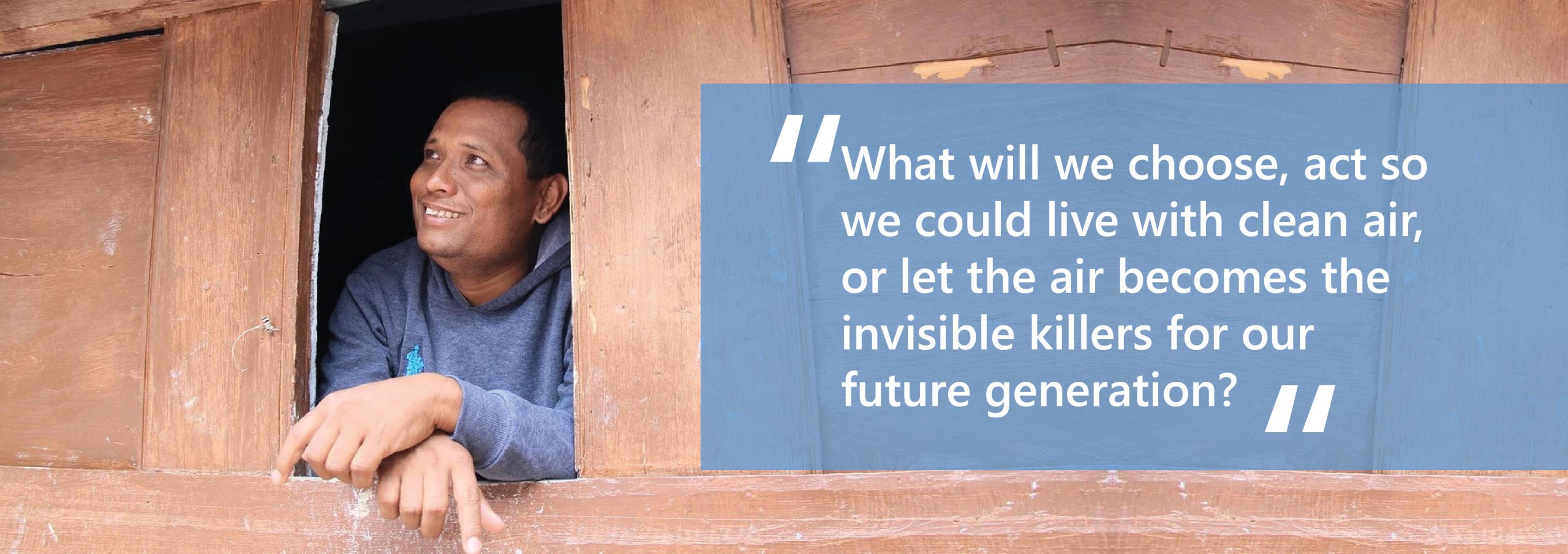
All living beings on earth should thank the air, which gives life for every new-born, and its day by day growth. Have you ever wondered, though, is the air that we breathe everyday clean enough for us? A report by Breathelife mentions that about 3.8 million people die every year due to air pollution. How so? The air that we breathe, that gives us life, can also kill us due to the pollutants—the invisible killers.
Air pollution originates from nature-driven events and human activities. These activities can produce emissions that cause both air pollution and GHG emissions. Thus, other than health issues, air pollution cannot be separated from climate change. Among others, we have learned that an increase in GHG emissions would cause sea level rise even permanent inundation.
As air quality and climate change go hand in hand, improving air quality can enhance climate change mitigation, and climate change mitigation can improve air quality. Now, the choice is in our hand. What will we choose, act so we could live with clean air, or let the air becomes the invisible killers for our future generation? The International Day of Clean Air for Blue Skies serves as a reminder for every one of us; governments, private sectors, academicians, civil society, and individuals to take action in reducing air pollution. Here is the insight on what we are doing in ASEAN.
Energy transition efforts
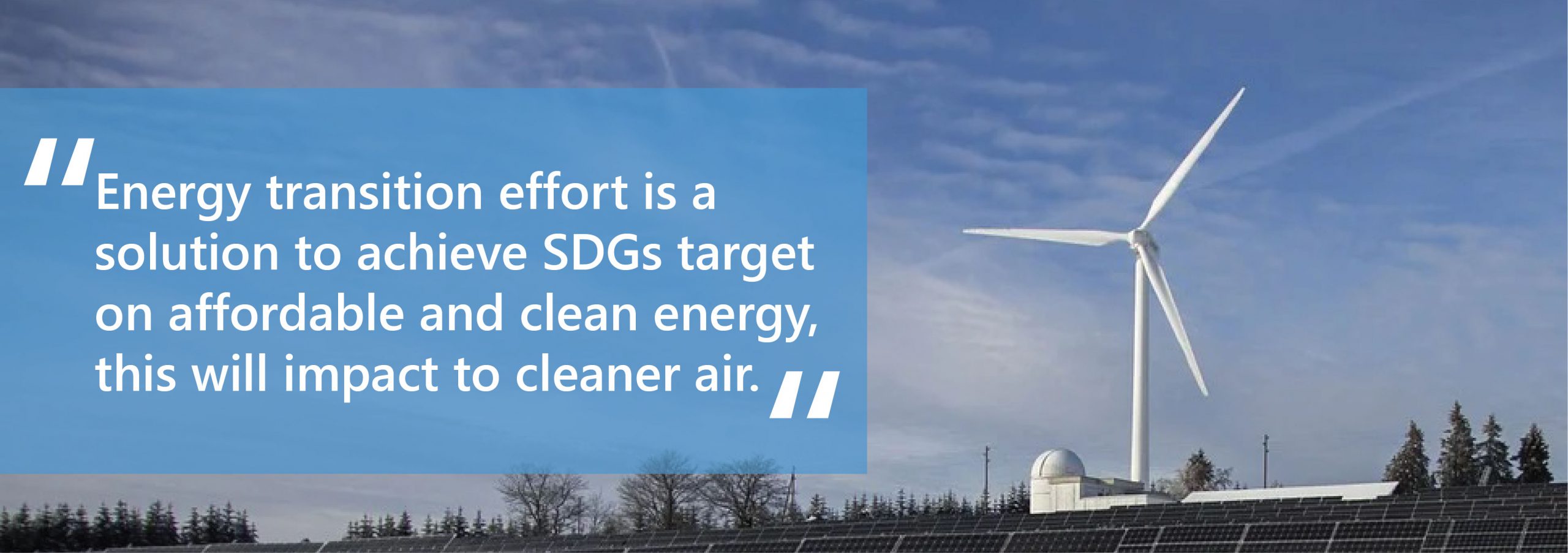
Any action against air pollution and climate change cannot be separated from the energy sector, as its production, transformation, distribution, and consumption emit pollution. According to FAO – 2014, the energy sector is the largest contributor to global GHG emissions. Technological options in the energy sector play a huge role in air pollution. For example, coal-fired power plant vs renewable in electricity generation, or ICEV vs EV in transportation. Each option will bring us to different level of air pollution and GHG emissions. The narrative fits well with the Sustainable Development Goals (SDGs). One of the SDGs is the Affordable and Clean Energy, which requires nations to pursue energy transition.
Some frontrunner nations have shown us how to transform the energy sector into more climate friendly. Strategies include installing renewables, applying energy resilience and efficiency, and implementing advanced technologies. Meanwhile in Southeast Asia, we see some efforts towards energy transition. Singapore is increasing its low carbon energy target, Indonesia is installing two new geothermal projects, and the Philippines is developing solar plans. Moreover, all Member States have a renewable target in the energy mix by 2030. Such efforts could be elevated by cooperative activities with frontrunner countries. For example, Norway and German support to ASEAN in energy-climate project and energy outlook development.
ASEAN Climate Change and Energy Project (ACCEPT) is the first energy-climate project in ASEAN which contributes to breaking the silo of the energy and climate to achieve SDGs. Realising its importance, ACCEPT conducts and disseminates various studies and analyses in energy-climate nexus. One of them is on the development of investment in renewable energy. Additionally, some energy alternatives are discussed, such as battery recycling, green coke, and electric vehicle. The project also encourages its focal person for each member state to share current updates on energy-climate nexus, such as development of a roadmap for achieving mitigation goals by Vietnam.
Climate change mitigation efforts
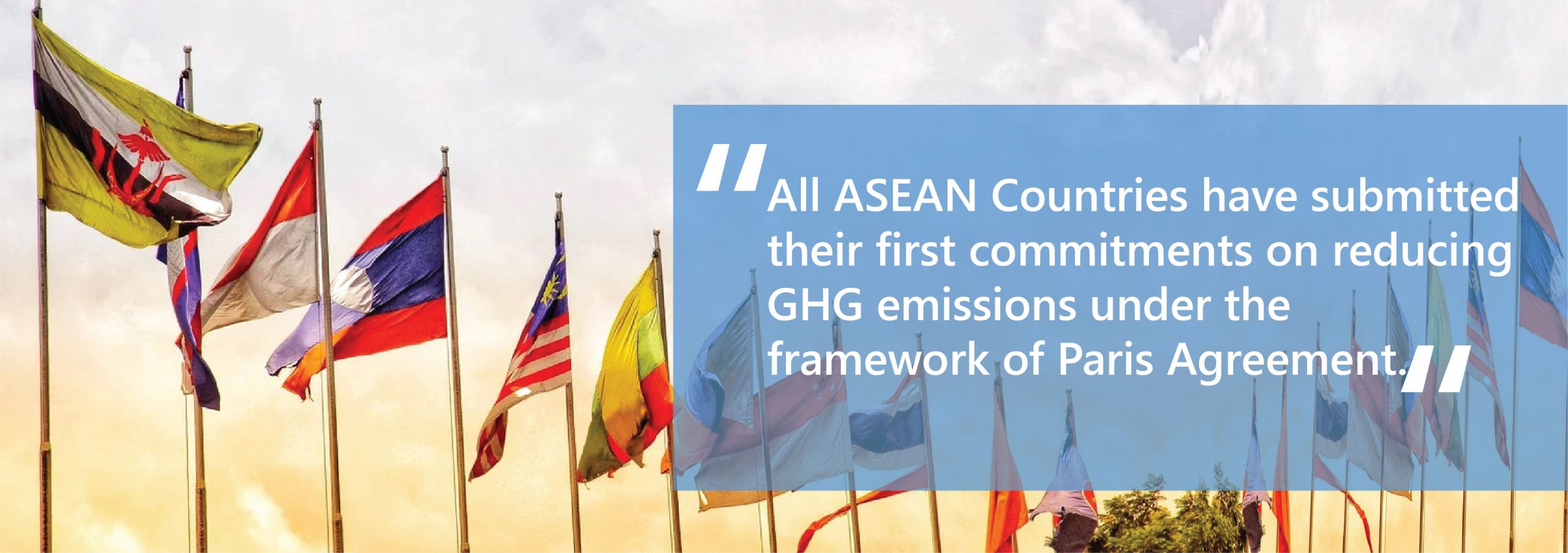
All ASEAN Countries have submitted their first commitments on reducing GHG emissions under the framework of Paris Agreement. Therefore, the countries are now implementing various climate actions to achieve such targets. Among them is an innovative measure by WRI Indonesia, which introduces ‘Emisi’ app that enables us to calculate and reduce carbon emissions. In creating long-term actions, Brunei Darussalam launches the first policy document to reduce greenhouse gas emissions. It is also important to enhance cooperation and partnership on pursuing CO2 emission reduction activities.
ACCEPT also produced one study namely The Paris Agreement and the Energy Policies of the ASEAN Member States, through which ASEAN Member States can evaluate their NDC document, especially from energy perspectives, in order to have a better target arrangement in their next NDCs.
COVID-19 pandemic and clean air
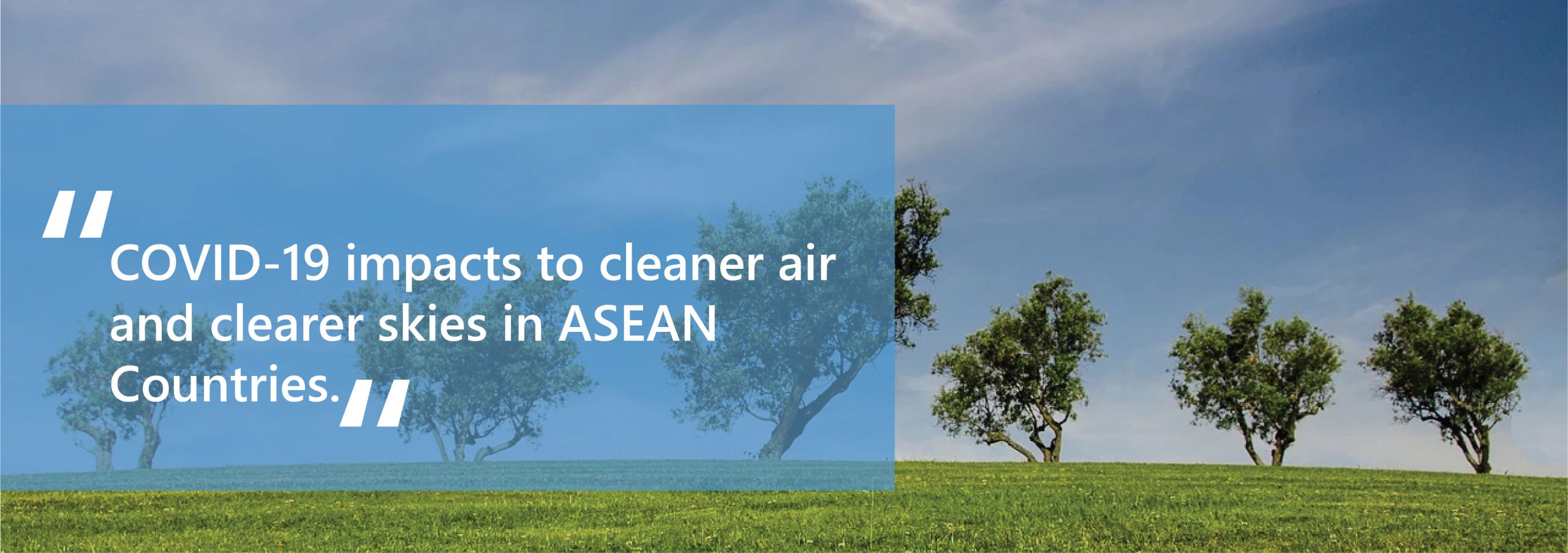
COVID-19 pandemic impacts almost all sectors in the whole world. One of them is the transportation sector, mainly due to movement limit and ‘from home’ schemes. These cause unexpected clear skies in cities. In Thailand, the carbon monoxide emission witnessed a double decrease. And according to the Centre for Research on Energy and Clean Air (CREA), Kuala Lumpur, Manila, Singapore, and Bangkok experienced a significant decrease of Nitrogen Dioxide (NO2) due to the drop of transportation and industry demand.
As reported in the Energy-Climate Insight Q2, this ‘silver lining’ impacts provided us with a glimpse of how people can improve air quality in urban region. For example, working from home, or working near home, can become a good measure to contribute to cleaner air, while keeping people safe during a pandemic. Some researchers also showed us how to maintain long term cleaner air by identifying its correlation with COVID-19. Hopefully, the pollution-free clear skies can last long.
You can act for #CleanAirForAll!
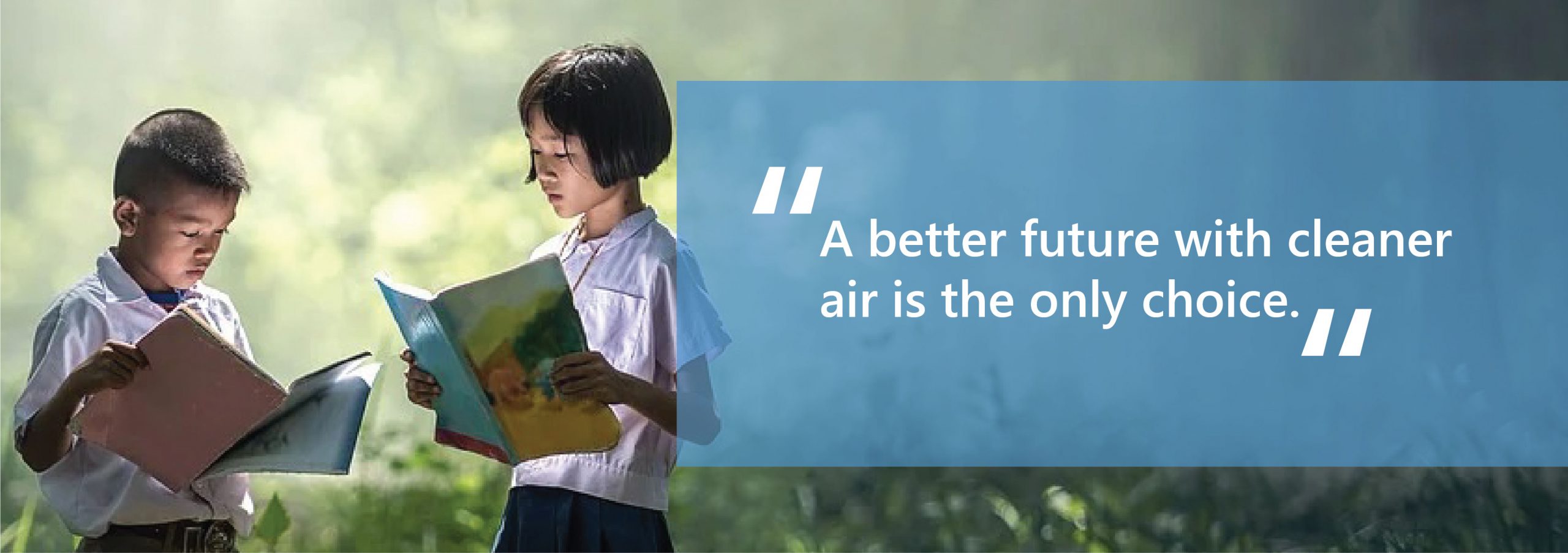
On a larger scale, the transition to clean energy and improvement of energy efficiency are required to establish a climate and environment-friendly energy system. Nevertheless, there are many actions that can be done by individuals. It is time for us to be self-aware on the importance of having clean air for a healthy future.
There are several actions that can be applied in our daily activities such as planting trees, using energy efficient appliances, applying energy efficiency measures at home and on road, and applying reduce-reuse-recycle scheme. Positive habits could impact on #CleanAirForAll. Today is the International Day of Clean Air for blue skies. A better future with cleaner air is the only choice.
(Photos source: Pixabay.com)